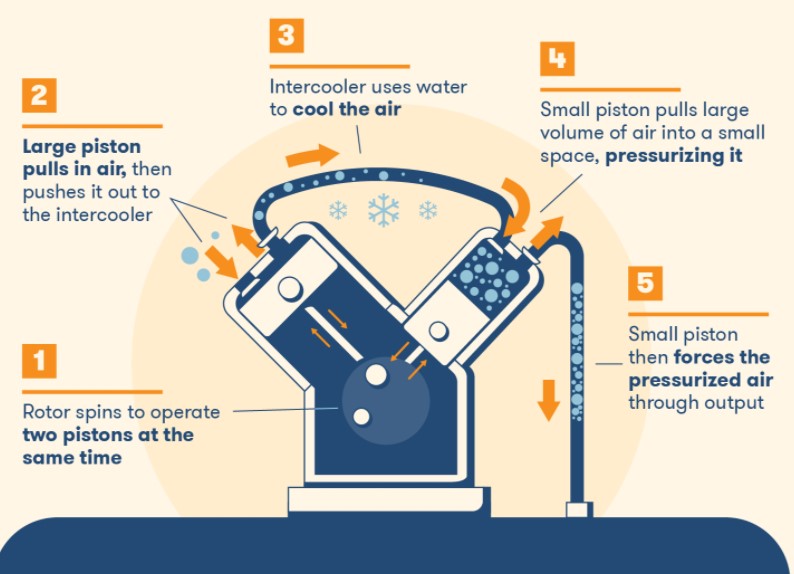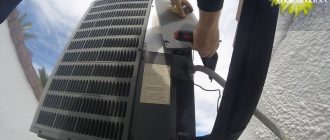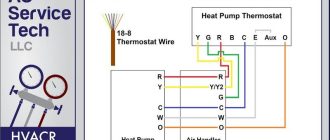
How do I check if my AC compressor is working?
If you rely on your air conditioning (AC) to keep you cool during the hot summer months, it’s important to regularly check if your AC compressor is working properly. The compressor plays a crucial role in the AC system as it is responsible for compressing the refrigerant gas and turning it into a liquid, which then cools the air in your home. If your AC compressor is not working correctly, it can lead to poor cooling performance, increased energy consumption, and even damage to the entire system.
So, how can you tell if your AC compressor is working as it should? There are a few signs to look out for. First, pay attention to the air coming out of your vents. If it’s not as cold as it used to be or if the airflow is weak, it could indicate a problem with the compressor. Additionally, if you notice strange noises coming from the AC unit, such as grinding, hissing, or banging sounds, it’s a clear sign that something is wrong.
Another way to check the functionality of your AC compressor is to pay attention to your energy bills. A compressor that is not working properly will consume more energy, resulting in higher electricity costs. If you notice a significant increase in your monthly bills without any change in your usage habits, it’s worth investigating the performance of your AC compressor.
In conclusion, it’s essential to regularly check if your AC compressor is working properly to ensure optimal cooling performance and energy efficiency. If you notice any signs of a malfunctioning compressor, such as weak airflow, strange noises, or increased energy consumption, it’s recommended to contact a professional HVAC technician to diagnose and repair the issue. Remember, timely maintenance and repairs can help prolong the lifespan of your AC system and save you money in the long run.
Signs of Proper AC Compressor Functioning
If you’re wondering how to tell if your AC compressor is working properly, here are a few signs to look for:
1. Cool Air: When the compressor is functioning correctly, you should feel cool air coming from the AC vents. If the air is warm or not as cool as it should be, it could be a sign that something is wrong with the compressor.
2. Consistent Cycling: The compressor should cycle on and off to maintain the desired temperature in your home. If the compressor is not cycling properly, it may be running constantly or not turning on at all, indicating a potential issue.
3. No Strange Noises: A properly functioning compressor should make minimal noise. If you hear loud or unusual noises coming from the compressor, such as rattling or grinding sounds, it could be a sign of a problem.
4. Proper Airflow: The compressor is responsible for pushing air through the air conditioning system. If you notice weak or decreased airflow from the vents, it may be a sign that the compressor is not working as it should.
5. Efficient Cooling: A functioning compressor should provide efficient cooling throughout your home. If you notice uneven cooling or certain areas that are not being adequately cooled, it could be a sign of compressor malfunction.
6. Regular Maintenance: To ensure proper compressor functioning, it is important to schedule regular maintenance for your AC system. Regular inspections and cleaning can help detect and prevent any potential issues with the compressor before they become major problems.
Remember, if you have any concerns about the functioning of your AC compressor, it’s always best to consult a professional HVAC technician for a thorough inspection and diagnosis.
Maintaining Optimal Temperature
One of the key indicators of a properly functioning AC system is maintaining optimal temperature in your home or workspace. The AC compressor plays a crucial role in cooling the air and ensuring comfort. So, how do you know if your AC compressor is working as it should?
The first thing you can do is check the air coming from the vents. Is it cool and refreshing? If the air feels warm or not as cold as it should be, it could be a sign that the compressor is not functioning properly.
Another way to check is by listening to the AC unit. When the compressor turns on, you should be able to hear a distinct humming sound. If you don’t hear anything or if the sound is unusual, it’s a sign that there may be an issue with the compressor.
If you suspect a problem with your AC compressor, it’s best to call a professional technician to diagnose and fix the issue. They have the expertise and tools to accurately assess the problem and provide the necessary repairs or replacements.
Regular maintenance is also essential to keep the AC compressor running smoothly. This includes cleaning or replacing air filters, checking refrigerant levels, and inspecting the compressor for any signs of damage or wear. By taking care of your AC system, you can ensure optimal temperature control and prolong its lifespan.
Remember, a well-functioning AC compressor is vital to maintaining a comfortable and cool environment. By knowing how to check and maintain your AC compressor, you can enjoy the benefits of efficient and effective cooling all year round.
Adequate Airflow
One of the first things you should check if you suspect a problem with your AC compressor is the airflow. Adequate airflow is crucial for the proper functioning of your AC unit. If there is not enough airflow, it can indicate that your AC compressor is not working correctly.
To check the airflow, start by making sure that the air filters are clean and not clogged. Clogged filters can restrict the airflow and put unnecessary strain on the compressor. If the filters are dirty, replace them or clean them according to the manufacturer’s instructions.
Next, check the vents to ensure that the air is coming out at a sufficient volume. If the airflow feels weak or if only a small amount of air is coming out, it could be a sign that your AC compressor is not working properly.
You should also check the outdoor unit of your AC system. Make sure that there are no obstructions around the unit that could block the airflow. Overgrown vegetation, debris, or objects placed too close to the unit can impede the airflow and affect the performance of the compressor.
If you have checked the filters, vents, and outdoor unit, and you still suspect a problem with your AC compressor, it is recommended to contact a professional HVAC technician. They can diagnose the issue and provide the necessary repairs or maintenance to ensure that your AC system is working efficiently.
Consistent Cooling
To determine if your AC compressor is functioning properly, it is important to check the consistency of your cooling. If you notice that the temperature in your home is not as cool as it should be, it may be a sign that your AC compressor is not working efficiently.
There are several steps you can take to check if your AC compressor is working:
| Step 1 | Start by adjusting the thermostat to a lower temperature than the current one. Wait for a few minutes and check if you feel a noticeable change in the air temperature. |
| Step 2 | Inspect the outdoor unit of your AC system. The compressor is located inside this unit and is responsible for cooling the air. If you hear unusual noises coming from the compressor or notice any leaks, it may indicate a problem. |
| Step 3 | Observe the air vents in your home. If there is weak or no airflow coming from the vents, it could be a sign that the compressor is not functioning properly. |
| Step 4 | Check the circuit breaker for your AC unit. If the breaker has tripped, it could be a simple fix to get your compressor back up and running. Reset the breaker and monitor if the cooling improves. |
If after performing these checks you suspect that your AC compressor is not working properly, it is recommended to call a professional technician to diagnose and repair the issue. They will have the expertise and specialized tools to safely evaluate and fix any problems with your AC compressor.
Noises and Vibrations
One of the ways to check if your AC compressor is functioning properly is by paying attention to any unusual noises or vibrations coming from the unit. These can indicate a problem with the compressor or its components.
If you hear loud banging or clanking noises, it could mean that there is a loose or broken part inside the compressor. This could be caused by wear and tear or a malfunction in the system. In either case, it is important to have a professional technician inspect and repair your AC compressor.
Another common noise to watch out for is a squealing or grinding noise. This could indicate that the belts connecting the compressor to the motor are worn out or need to be replaced. Ignoring this issue can lead to further damage to the compressor and potentially a complete breakdown of your AC system.
Vibrations can also be a sign of a problem with the AC compressor. If you feel excessive vibration or shaking coming from the unit, it could mean that the compressor is not functioning as it should. This could be due to a misalignment or a damaged mounting system. It is important to address this issue as soon as possible to prevent further damage.
In conclusion, if you notice any strange noises or vibrations coming from your AC compressor, it is crucial to have it checked by a professional. Ignoring these signs can lead to more serious damage and potentially costly repairs. Regular maintenance and inspections can help ensure that your AC compressor is functioning properly and efficiently.
Proper Electrical Connection
One of the important factors in determining whether your AC compressor is functioning properly is to check the electrical connection. The electrical connection is crucial for the AC unit to work efficiently. If the electrical connection is faulty, it can affect the performance of the compressor and lead to various issues.
To check the electrical connection of your AC compressor, you can follow these steps:
- First, ensure that the power to the AC unit is turned off before inspecting the electrical connection.
- Locate the electrical box or panel that contains the wiring and connections for the AC unit.
- Inspect the wiring for any visible damage, such as frayed or exposed wires.
- Tighten any loose connections using a screwdriver or wrench.
- Check for any signs of corrosion or rust on the electrical components, as this can interfere with the connection.
- If you notice any significant damage or corrosion, it is recommended to call a professional HVAC technician to repair or replace the electrical components.
By ensuring a proper electrical connection, you can enhance the performance and longevity of your AC compressor. Regular maintenance and inspection of the electrical connection can help prevent potential issues and ensure that your AC unit is working efficiently.
Balanced Refrigerant Levels
One way to check if your AC compressor is working properly is to ensure that the refrigerant levels in your system are balanced. Refrigerant is a vital component in your AC system as it is responsible for absorbing heat from the air and cooling it down.
If your refrigerant levels are low, it could indicate a leak or another issue with your system. Low refrigerant levels can cause your AC compressor to work harder and may lead to inefficiencies and decreased cooling performance.
To determine if your AC compressor is working efficiently, you can have an HVAC technician perform a refrigerant level check. They will use specialized equipment to measure the amount of refrigerant in your system and compare it to the manufacturer’s recommended levels.
If the refrigerant levels are too high or too low, the technician will need to make adjustments to bring them back into balance. This may involve adding more refrigerant or fixing any leaks in the system. By ensuring that the refrigerant levels are balanced, you can help prevent unnecessary strain on your AC compressor and extend its lifespan.
Regular maintenance and inspections can help identify any issues with your AC compressor early on and prevent costly repairs in the future. If you notice any unusual noises, reduced cooling performance, or other signs that your AC compressor may not be functioning properly, it’s important to have it checked by a professional as soon as possible.
Remember: Balanced refrigerant levels are crucial for maintaining optimal performance and efficiency of your AC compressor.
Quick and Responsive Cooling
If you’re wondering whether your AC compressor is functioning properly, one of the easiest ways to check is to see if your AC is delivering quick and responsive cooling. When you turn on your AC, it should start working right away and blow cool air into the room. If you notice a delay in the cooling or if the air being blown out is not as cool as it should be, there may be an issue with the compressor.
The compressor is responsible for pressurizing and cooling the refrigerant that circulates through your AC system. If the compressor is not functioning properly, it may not be able to properly cool the refrigerant, resulting in reduced cooling performance. This could be caused by a number of issues, such as a faulty compressor motor or low refrigerant levels.
If you suspect that your AC compressor is not working correctly, it’s best to get it checked by a professional HVAC technician. They will be able to assess the condition of your compressor and determine if any repairs or replacements are necessary. Remember, a properly functioning AC compressor is essential for efficient and effective cooling in your home or office.
Efficient Energy Consumption
One of the most important factors to consider when checking if your AC compressor is functioning properly is its energy consumption. By ensuring that your AC is using energy efficiently, you can not only save money on your utility bills but also prolong the lifespan of your compressor.
So, how can you check if your AC compressor is consuming energy efficiently? There are a few steps you can take:
1. Check the SEER rating: The Seasonal Energy Efficiency Ratio (SEER) measures the cooling output of your AC system per unit of energy it consumes. Higher SEER ratings indicate better energy efficiency. To ensure efficient energy consumption, make sure your AC has a high SEER rating.
2. Regular maintenance: Proper maintenance, including cleaning or replacing air filters, cleaning condenser coils, and checking refrigerant levels, can improve energy efficiency. It is recommended to schedule regular maintenance sessions with a professional technician to keep your AC running efficiently.
3. Programmable thermostat: Installing a programmable thermostat can help you set temperature schedules according to your needs. This can prevent excessive cooling when you are not at home, leading to better energy efficiency.
4. Insulation and sealing: Proper insulation and sealing can prevent cool air from escaping your home, allowing your AC compressor to work more efficiently. Consider insulating your windows, doors, and ductwork to reduce energy waste.
By following these steps and regularly checking your AC compressor’s energy consumption, you can ensure that your AC system is functioning properly and consuming energy efficiently.
Avoiding Frequent Breakdowns
To avoid frequent breakdowns and ensure your AC compressor functions properly, there are a few things you can do:
| 1. Regularly check the air filter: | Dirty and clogged air filters can restrict airflow and put extra strain on the AC compressor. Make sure to check and clean or replace the air filter regularly. |
| 2. Keep the outdoor unit clear: | The outdoor unit of your AC system should be free from any obstruction or debris. Trim any vegetation or bushes around it and ensure it has enough space to properly dissipate heat. |
| 3. Schedule regular maintenance: | Professional AC maintenance can help identify and address potential issues before they become major problems. Consider scheduling annual maintenance to keep your AC compressor in good condition. |
| 4. Monitor refrigerant levels: | Low refrigerant levels can indicate a leak in the system, which can lead to compressor failure. If you notice reduced cooling performance or any signs of a refrigerant leak, contact a professional to check and recharge the system if necessary. |
| 5. Pay attention to unusual sounds or smells: | If you hear loud banging or grinding noises coming from your AC unit, or if you notice any unusual smells, it could be a sign of a compressor issue. In such cases, it is important to have a professional technician inspect and diagnose the problem. |
By following these tips, you can help prolong the lifespan of your AC compressor and minimize the chances of frequent breakdowns. Remember that regular maintenance and timely repairs are key to keeping your AC system running smoothly.
Regular AC Compressor Maintenance
Regular maintenance of your AC compressor is crucial to ensuring its proper functioning and longevity. By performing routine checks, you can identify any issues early on and prevent costly repairs or replacements in the future.
So, how do I check if my AC compressor is functioning properly? Here are a few steps you can take:
- Inspect the compressor: Start by visually inspecting the compressor for any signs of damage, such as leaks or corrosion. If you notice any issues, it may be best to call a professional for further evaluation and repair.
- Listen for unusual noises: Turn on your AC unit and listen for any unusual noises coming from the compressor. Grinding, squealing, or rattling sounds could indicate a problem and should be addressed promptly.
- Check for proper airflow: Ensure that the air coming from the AC vents is cold and strong. Weak airflow could indicate a problem with the compressor or other components of the system.
- Monitor cooling performance: Pay attention to how well your AC is cooling your space. If you notice a decrease in cooling performance, it may be a sign that the compressor is not functioning optimally.
- Keep the area clean: Regularly clean the area around the compressor to prevent dirt and debris from entering the system. Clogged vents or filters can put strain on the compressor and affect its performance.
- Schedule professional maintenance: It is recommended to have a professional HVAC technician inspect and service your AC unit regularly. They can perform more thorough checks and address any underlying issues that may be affecting the compressor.
By following these steps and staying vigilant about your AC compressor’s maintenance, you can help ensure that it continues to function properly and efficiently, keeping your home cool and comfortable.
Correct Pressure Levels
To determine if your AC compressor is functioning properly, it’s important to check the pressure levels. The compressor plays a crucial role in the operation of your AC unit, as it’s responsible for compressing refrigerant gas and circulating it through the system.
There are two pressure levels you should pay attention to: the high pressure and low pressure. The high pressure side, also known as the “high side,” carries the hot, compressed refrigerant gas to the condenser. The low pressure side, also known as the “low side,” carries the cooler, expanded refrigerant gas back to the compressor.
If the pressure levels are too low or too high, it indicates a problem with the AC system. Low pressure can indicate a refrigerant leak or a malfunctioning compressor, while high pressure can indicate a blockage or a failing compressor. It’s important to find the root cause of the pressure imbalance to prevent further damage to your AC system.
To check the pressure levels, you’ll need an AC gauge set. Start by attaching the gauge set to the low and high pressure ports on your AC system. These ports are typically located near the compressor. Then, with the AC turned on, allow the system to run for a few minutes to stabilize the pressure.
Once the pressure has stabilized, compare the readings on the gauge set to the manufacturer’s recommended pressure levels. These levels can vary depending on the make and model of your AC unit. If the pressure levels are within the recommended range, it indicates that your AC compressor is functioning properly. However, if the pressure levels are outside the recommended range, it’s a sign that further inspection and repairs may be necessary.
In conclusion, checking the pressure levels is a crucial step in determining if your AC compressor is functioning properly. By monitoring the high and low pressure levels, you can identify any potential issues with the compressor or other components of your AC system, and take the necessary steps to rectify them.
Proper Lubrication
The compressor is the heart of an AC system, and it requires proper lubrication to function effectively. Inside the compressor, there are various moving parts that operate at high speeds. Lubrication is essential to reduce friction and prevent damage.
To check if the compressor is properly lubricated, you can do the following:
- Visual Inspection: Look for any signs of oil leaks around the compressor. If you notice oil stains or puddles, it indicates a problem with the lubrication system.
- Listen for Unusual Sounds: A properly lubricated compressor will operate smoothly and quietly. If you hear any grinding, squeaking, or knocking noises, it could be a sign of insufficient lubrication.
- Monitor Temperature: An overheating compressor can be a result of poor lubrication. Use a temperature gauge to check if the compressor is running hot. If the temperature exceeds the recommended range, it’s advisable to have a professional inspect the lubrication system.
Regular maintenance and lubrication checks are crucial to ensure the longevity and efficient operation of your AC compressor. If you’re unsure how to perform these checks or suspect a problem with your compressor, it’s best to contact a qualified HVAC technician.
Getting Professional Help
If you suspect that your AC compressor is not working properly, it is recommended to seek professional help. HVAC technicians have the knowledge and expertise to diagnose and repair issues with your AC compressor. They can perform a variety of tests and inspections to determine the root cause of the problem.
When hiring a professional, it is important to choose a reputable and experienced technician. Look for certifications such as NATE (North American Technician Excellence) to ensure that the technician is qualified to work on your AC system.
During the inspection, the technician will check various components of the AC system, including the compressor. They will look for signs of damage or malfunction, such as overheating or unusual noises. Additionally, they may perform tests to measure the compressor’s efficiency and ensure that it is working optimally.
If the technician determines that the compressor is not functioning properly, they will provide recommendations for repair or replacement. Proper maintenance and timely repairs can help extend the lifespan of your AC system and prevent further issues down the line.
Remember, attempting to fix the compressor on your own can be dangerous and may further damage the system. It is best to leave the job to professionals who have the expertise and tools to handle AC compressor repairs.
Q&A:
What are the signs that indicate a malfunctioning AC compressor?
Some signs that indicate a malfunctioning AC compressor include warm air blowing from the vents, strange noises coming from the unit, and reduced airflow.
How do I inspect my AC compressor?
To inspect your AC compressor, you can start by checking the air temperature from the vents, listening for any unusual sounds, and observing the airflow. If you notice any issues, it’s best to call a professional technician to conduct a thorough inspection.
What can cause an AC compressor to malfunction?
Several factors can cause an AC compressor to malfunction, such as electrical problems, low refrigerant levels, refrigerant leaks, or a faulty compressor clutch. It’s important to address these issues promptly to avoid further damage to the AC system.
How often should I have my AC compressor inspected?
It is recommended to have your AC compressor inspected by a professional technician at least once a year, preferably before the hot summer months when the system is used more frequently. Regular inspections can help identify potential issues early on and ensure the AC compressor is functioning properly.




